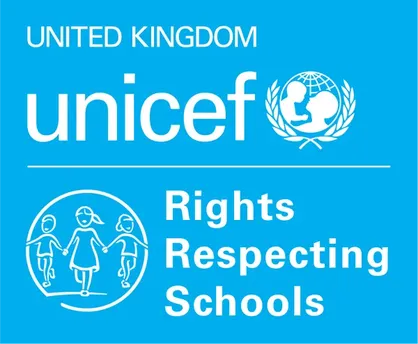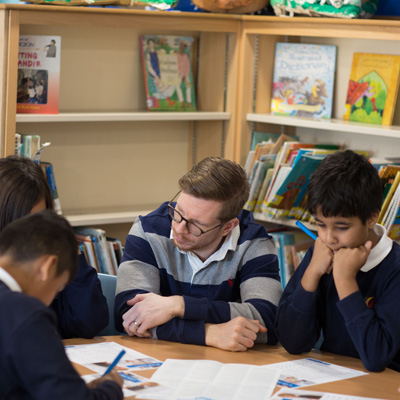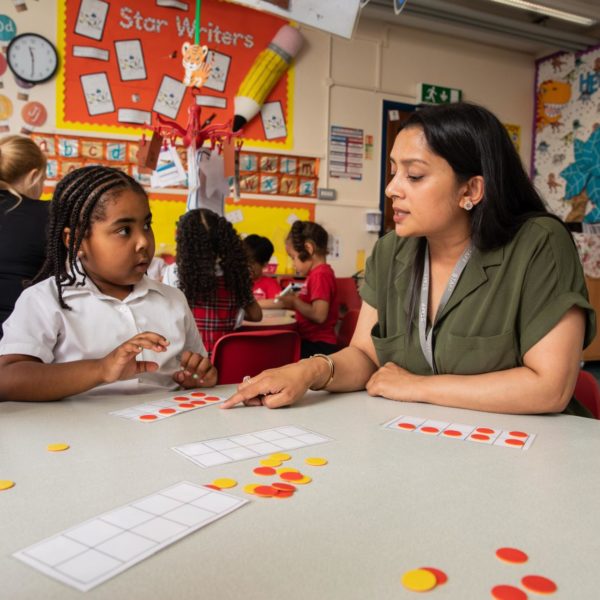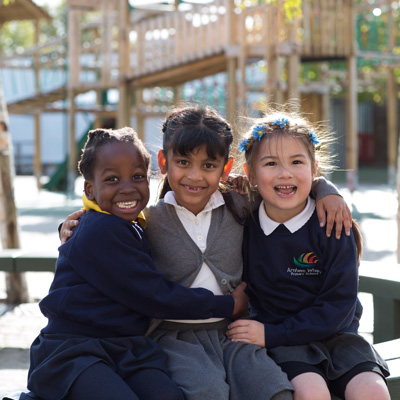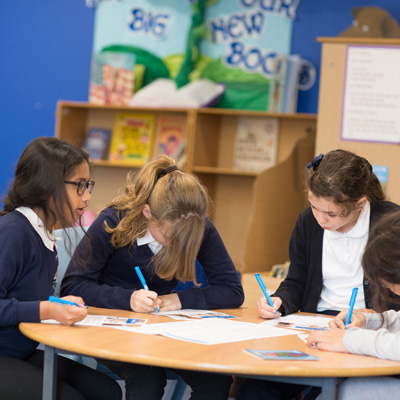Strong relationships, centered on rights, mean pupils feel listened to and are supported in their growth at Grange School.
Megan Williams, PSHE co-ordinator and RRSA lead at Grange School, a special school in Manchester, discusses how relationships are underpinned by children’s rights, charters and the behaviour policy.
A rights respecting influence on behaviour
Ofsted noted at our last inspection that, ‘Pupils are friendly, respectful and supportive of each other. Their behaviour is exemplary.’ Visitors often comment that our pupils display impeccable levels of respect and kindness. Despite barriers existing around verbal communication skills, pupils have learnt how to develop strong, safe and mutual relationships with others. They know how to seek and give consent and respond to this with respect.
Our staff survey shows that staff feel they are treated with respect by pupils. This is clear in pupil behaviour across school, as pupils hold doors open for staff and pupils seek support from staff to deal with others’ behaviour. Children here feel listened to and supported in their growth, they talk openly with staff about sensitive topics like mental health, puberty and identity and our pupil voice survey identified that children feel they feel listened to and can talk to someone if they are worried.
Charters and behaviour policy
Our policies are strongly influenced by children’s rights, in particular the rights to education and non-discrimination. Being a special school, we have developed a bespoke curriculum which places emphasis on pupils’ awareness of their own and others’ behaviours. The behaviour policy says that every pupil understands they have the right to feel safe, valued and respected, and learn free from the disruption of others. Our behaviour policy aims to support pupils to be calm, safe and regulated in school, and this is achieved through a cohesive approach to positive behaviour support, zones of regulation and individualised behaviour support plans. This has had an overwhelmingly positive impact on reducing behaviour incidents and fostering an ethos of respect.
We introduced class charters as a start-of-year activity. Pupils and staff work together to think of rules for the classroom and have drawn or acted out the model behaviours they expect to see in the classroom. Pupils have started to use rights respecting language to reflect on their own and others’ behaviour. They have learnt that everyone deserves to be treated with respect and apply this to their peers, familiar and less familiar class staff.
Strengthening relationships with pupils and the community
Underpinned by rights, relationships with students and the wider community are strengthened in a variety of way.
As part of our child-friendly school development plan we shine a spotlight on pupils’ achievements in specific subjects. Their strengths are celebrated by assigning buddies to support the learning of pupils in different classes and year groups across the school. Our buddies feel valued and enjoy helping their peers, whilst providing exceptional examples of role model behaviour.
Pupils can choose to put themselves forward for the Student Leadership Team (SLT). Pupils then engage in a democratic vote to form the SLT who take part in regular meetings, bringing ideas to the table, involving the whole school in decision making and feeding back to their peers on events and initiatives.
Our PTA hosts weekly drop-ins at our on-site BrewHog Café which is run by school pupils. Pupils are confident in their customer service roles, happily taking orders and serving food to strangers. Our pupils build up independence and safety skills throughout their school journey, and this leads to a great deal of access to the wider community, from buying groceries in the local supermarket, to countless school trips, to construction and customer service work.
School context: Grange School is a special school for 4 to 19 year old children, there are 33 young people on roll. All pupils have an education, health and care plan.
